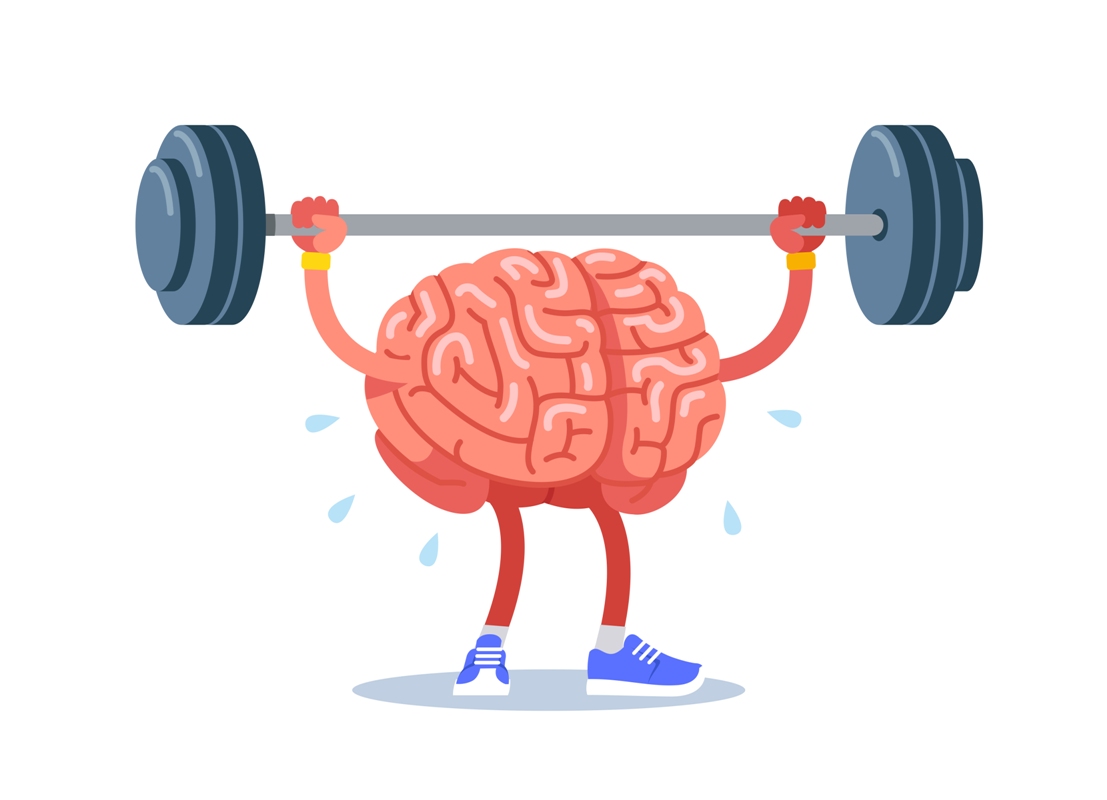I clearly remember the days of both my pregnancies. One of the main concerns was the cognitive growth of the fetus.
What should the mother-to-be eat?
What activities are important?
Habituating Emotional Wellness was important too, all to protect the health of the developing fetus.
Let me introduce you to the favourite organ of my body Mr. Brain, pet name ‘Bheja’
This three-pounder lies in a bony shell in a protective fluid is quite a fatty,(60% fat) and is made up of three main parts: Cerebrum. Cerebellum. Brain stem. He has a capacity to generate approximately twenty-three watts of power when awake, making him the seat of intelligence, interpreter of the senses, initiator of body movement, and controller of behavior.
Yes! He is a control freak, controls our thoughts, memory, speech, movement of arms and legs, as well as the function of organs within our body. Earning him a status of “KING” by being the source of all these qualities that define humanity.
(I beg to differ for those of you who think it’s the heart who is king)
FACT FILE:
- Your brain isn’t fully formed until age twenty-five.
- Your brain’s storage capacity is considered virtually unlimited.
- Brain information travels up to an impressive 268 miles per hour.
- On an average, your spinal cord stops growing at the age of four.
- The human brain is capable of creating more ideas equivalent to that of the atoms of the universe. It is made up of more than ten billion nerve cells and over fifty billion other cells.
- It is so complex that it is capable of generating the highest level of consciousness and the mental processes by which we perceive, act, learn and remember. Those billions of neurons power our thoughts, perceptions, memories and emotions.
“Cognitive decline may begin after midlife, but most often occurs at higher ages (70 or higher).” (Aartsen et al. 2002)
We look after our dear ‘Bheja,’ He needs to be kept hard-wired, active and with adequate periods of rest too. Apart from the medicinal angle of check up’s for brain health, we can sustain and improve our brain health by paying attention to our daily physical and mental well being. A person may sustain or even improve information-processing speed by paying close attention to vascular risk factors, engaging in
1-Regular aerobic exercise.
2-Healthy eating.
3-Continiously challenging oneself intellectually.
Bottom of Form
1- Exercise
improves memory and thinking ability among older adults with mild cognitive impairment. Aerobic exercise (walking, swimming or spot jogging) in particular, is shown to increase brain volume in most gray matter regions.
As the NIKE advertisement says “JUST DO IT”
2- Brain stimulating foods:
EAT
- Foods rich in Omega-3; oily fish such as; Salmon, Mackerel, Tuna, Herring, Sardines.
- Foods rich in Antioxidants; strawberries, blackberries, blueberries, blackcurrants, mulberries.
- Foods rich in omega-3 fatty acids, and antioxidants; nuts and seeds, in particular- sunflower seeds, almonds, hazelnuts, peanuts, Coffee.
- Foods rich in unsaturated fat; Avocado, almonds, cashews, and peanuts, flaxseed and chia seeds, soybean, sunflower, and canola oils, walnuts and Brazil nuts.
- Foods rich in Vitamin E; Peanuts, whole-grain foods include, brown rice, barley, bulgur wheat, oatmeal, whole-grain bread, whole-grain pasta
- Foods rich in Glucosinolates; Brussel sprouts, bok choy, cabbage, cauliflower, turnips, Kale.
- Foods rich in Folic Acid and B12: Eggs.
AVOID
- Refined sugar
- Refined flour
- Foods high in trans fats
- Highly processed foods
- Aspartame
- Alcohol in large quantities
- Fish high in mercury content
3- Intellectual Challenge:
“Sustained Attention, Response Inhibition, Speed of Information Processing, Cognitive Flexibility and Control, Multiple Simultaneous Attention, Working Memory, Category Formation, Pattern Recognition”
All these terms for stimulating our “Bheja” can be mind-boggling. Simply put, you need to stimulate your brain beyond its capacity.
Play thinking games and up your levels. Scrabble, Sudoku, Poker, Bridge, Crosswords, Mahjong, Chess and good old reading to stay updated with current affairs, are some you can start out with.
Our dear ‘Bheja’ also needs some down time to relax, rejuvenate and renew himself.
His answer is MUSIC.
The human brain and nervous system are hard-wired to distinguish music from noise and to respond to rhythm and repetition, tones and tunes.
Is this a biological accident, or does it serve a purpose?
Apart from the millions of studies, I know first hand that when I am stressed, my mind is racing with work load or negative thoughts causing anxiety or even at times its hard to disconnect and sleep, throughout the day through every phase of life, music has come to the rescue of my ‘Bheja.’
If I need to get into sleep mode, Mozart, ragas, will do the trick.
If I need to put in that aerobic exercise, pop, rock, R&B is the answer.
If I need to disconnect from work, take a break to think things through I rev up my favourite play list and sing along.
If my soul needs some feeding, its Gospel music time.
Once you have rested Mr. Bheja, giving him time to rejuvenate, he is sure to bounce back better and stronger and hard wired to take on the world.
Yes, Music does enhance human health and performance. It’s powerful enough to be “spine-tingling” and can light up the brain’s “reward center,” much like pleasurable stimuli ranging from alcohol to chocolate.
In tune or not, we humans sing and hum; in time or not, we clap and sway; in step or not, we dance and bounce.
Get your Yin Yang in place to compliment, interconnected and interdependent.
All that matters for your mind.








